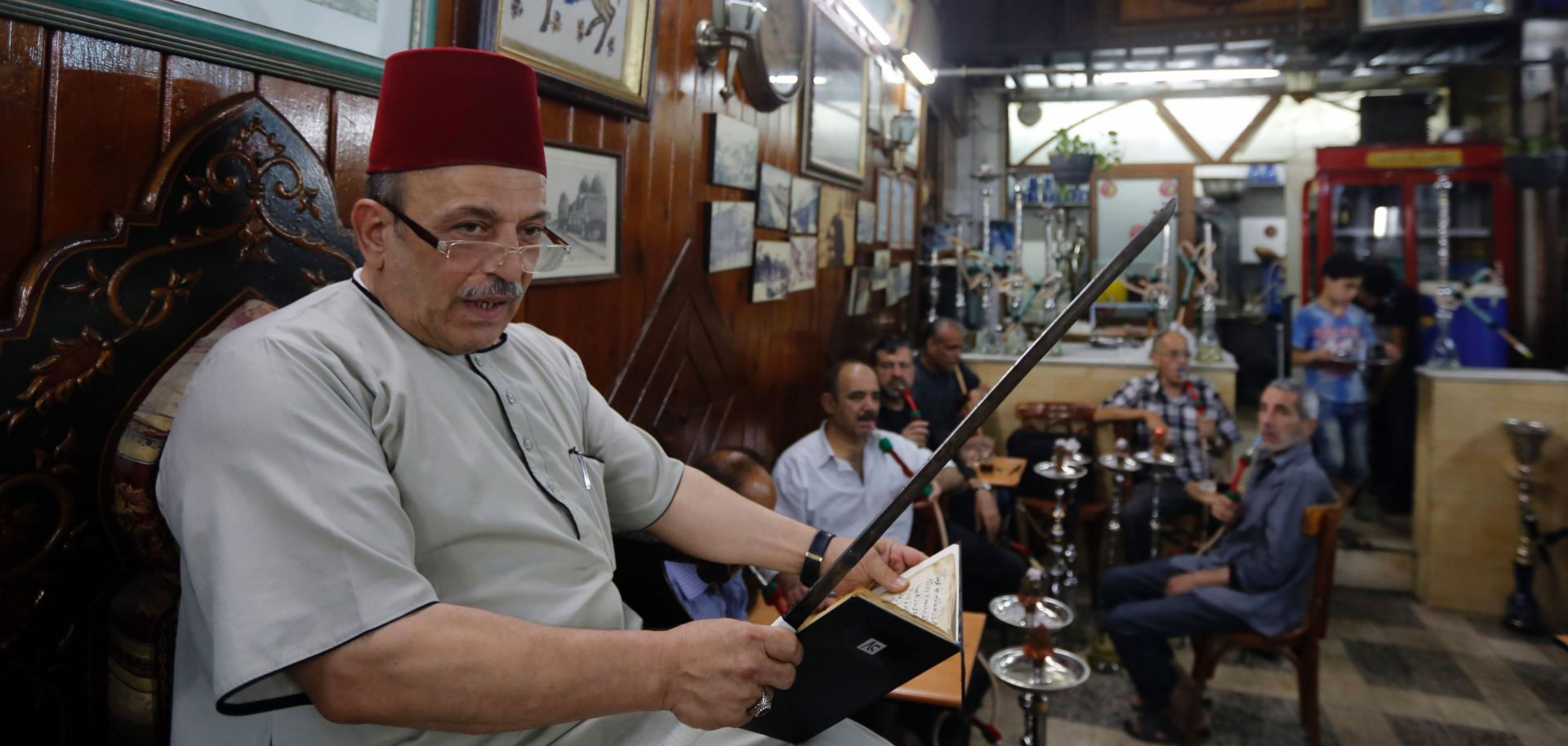Pages Bookstore Cafe brings the literary culture of Syria to the heart of Amsterdam, by way of Istanbul's Fatih neighborhood and before that Damascus, from which its founder, Samer Alkadri, fled in 2012. Alkadri is a Syrian painter and graphic designer who ran an advertising agency and children's book publisher called Bright Fingers until working in his homeland became too perilous. Today he stocks his stores in Turkey and in the Netherlands with Arabic books imported from Beirut. The shelves showcase modern Syrian literature and children's books.
Alkadri's intention with the Pages location in the Netherlands was to create a meeting place for culture and the arts in Amsterdam that would bring Europeans in direct contact with Syrians and other escapees from war and authoritarian rule....


